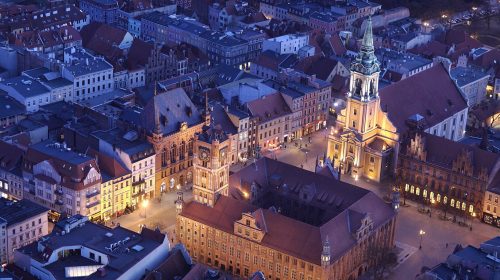The famous film by Jerzy Passendorfer from 1958 (its première took place in 1959) portrays one of the most-`famed operations of the Polish Home Army during WWII. It was the assassination of SS-Brigadeführer and Police Leader Franz Kutschera, who was commonly known as the butcher of Warsaw. From day one after taking his office in Warsaw, he organised massive street roundups and executions. Each week, 300 people were executed. The successful assassination resulted in a significant reduction in the scale of Nazi terror.
Zamach/Assassination is an accurate film reconstruction of the operation from 1st February 1944. The film by Jerzy Passendorfer was a breeding ground for new talents in Polish cinema. The roles of men and women soldiers of the Home Army were played by actors who at the time had just started their film careers, but who would later go down in the history of Polish cinema. These were such masters of cinema as Tadeusz Łomnicki, Roman Kłosowski, Jan Kobuszewski, Stanisław Mikulski, and Wojciech Siemion, to name but a few.
Toruń plays Warsaw
The scene involving evacuating fighters “Sokół” and “Juno” from the battlefield (in the film, they have the pseudonyms “Zawada” and “Orzeł”) was filmed on the Józef Pilsudski bridge in Toruń. In the film, both fighters jump down from the Kierbedź Bridge into the Vistula River, after a shoot-out with the Germans, and drown. Since the bridge had been destroyed during the Warsaw Uprising, the film crew looked for a similar bridge, which could play the Kierbedź Bridge. They found the ideal candidate in Toruń.
Trivia
- The communist authorities in Poland did not allow the use of the name Home Army” for the film. For this reason, viewers would never learn the name of the organisation which executed “the butcher of Warsaw”, for the whole duration of the film. It was quite surprising, since the film was made after the end of the Stalinist era in Poland, during which being a member of the Polish Home Army meant serving long years in prison or even being sentenced to death.
- In addition, the name Franz Kutschera is also never spoken in the film.
- One of the participants in the assassination of Franz Kutschera would later be commemorated in his own movie. This was Bronisław Hellwig, pseudonym “Bruno”, who was one of the drivers of the cars used in the operation. Dawid Janicki, a native of Toruń, and his Shipsboy production company, dedicated one episode in the series Wartime Portraits (purchased by Netflix, in 2016) to Bronisław Hellwig. It is the first-ever Polish film series made according to the “animadoc” format (it combines animation and documentary), which was popularised by Sin City, for example. That episode was directed by Tomasz Matuszczak from Bydgoszcz.
- When Zamach/Assassination was filmed, Hanna Szarzyńska-Rewska, the most-important liaison officer participating in the operation, was serving a prison sentence. She was the first political prisoner in Poland after the end of the Stalinist era. She was arrested on 4th July 1958, and accused of possessing a copy of Kultura”, a magazine printed in Paris.
The communist court charged her with disseminating “false news” and sentenced to three years in prison. During the première of Zamach/Assassination, she was still in prison (according to Jerzy Eisler, Ph.D., the Institute of Polish Remembrance in Warsaw). - One of the history consultants for the film was another participant in the operation, Michał Issajewicz, pseudonym “Miś.”
- Veterans of the Home Army were angry with the film director for using the word Assassination as the film title. In their view on the matter, assassinations were committed by terrorists, while the execution of Franz Kutschera was a legitimate military operation of the Polish Underground State.
Information on the film
Zamach / Assassination
Poland 1958, 81′
Directed by: Jerzy Passendorfer
Screenplay: Jerzy Passendorfer
Cinematography: Jerzy Lipman
Music: Adam Walaciński
Produced by: Zespół Filmowy Iluzjon
Cast: Bożena Kurowska, Grażyna Staniszewska, Zbigniew Cynkutis, Andrzej Kostenko, Roman Kłosowski, Tadeusz Łomnicki, and others.
Selected Awards
Mar del Plata IFF – Second Prize of the Committee of Theatre Critics in Argentina, an award for the script; San Sebastian IFF – the FIPRESCI Prize and a Special Mention for the best script; the IFF in Mexico – an award for Best Director; the IFF in Guadalajara – The Silver Sombrero; the Cuneo International Film Festival dedicated to resistance movements – Gold Medal; and others.

